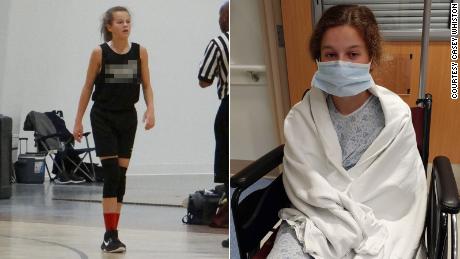“This was after adjustment for cardiovascular and pulmonary diseases and care home residence, which our results suggest explained some but not all of the increased risk,” the researchers wrote.
Their analysis involved more than 8 million adults who were part of a coronavirus risk assessment project sponsored by the British government. Of the 8.26 million people in the tracking study, 4,053 had Down syndrome. Of those, 68 people with the disability died and 40% were killed by Covid-19. Seventeen died of pneumonia or pneumonitis and 35% died of other causes.
Those numbers compare with more than 41,000 people without Down syndrome who died, but just 20% died from the coronavirus, 14% from pneumonia or pneumonitis and 65% died of other causes.
Down syndrome is not included in any guidance from the US Centers for Disease Control and Prevention or the UK’s health ministry as a condition that would put people at increased risk for Covid-19.
“However it is associated with immune dysfunction, congenital heart failure, and pulmonary pathology and, given its prevalence, may be a relevant albeit unconfirmed risk factor for severe COVID-19,” researchers concluded.
A community at risk
National Down Syndrome Society President and CEO Kandi Pickard said her group is grateful that the study has put a focus on the impact of Covid-19 on people with Down syndrome.
“From the beginning of the pandemic, we have been concerned about our community, especially given the complex medical histories of many of our loved ones,” Pickard said. “This recent study confirms our concerns.”
the
“Q&A on COVID-19 and Down Syndrome” resource guide to help caregivers and others. People with Down syndrome often communicate and understand information in different ways, and they may have trouble understanding social distancing, masking and other ways to prevent infection.
“People with Down syndrome may also have a hard time telling others when they don’t feel well,” according to the coalition. “They may have trouble knowing they have symptoms or how to describe them. For these reasons, they may not raise concerns or seek medical care quickly. Therefore, it is necessary to pay close attention and be watchful.”
according to the CDC, with more than 6,000 babies born with the disability every year. Down syndrome occurs in 1 in every 700 babies.

